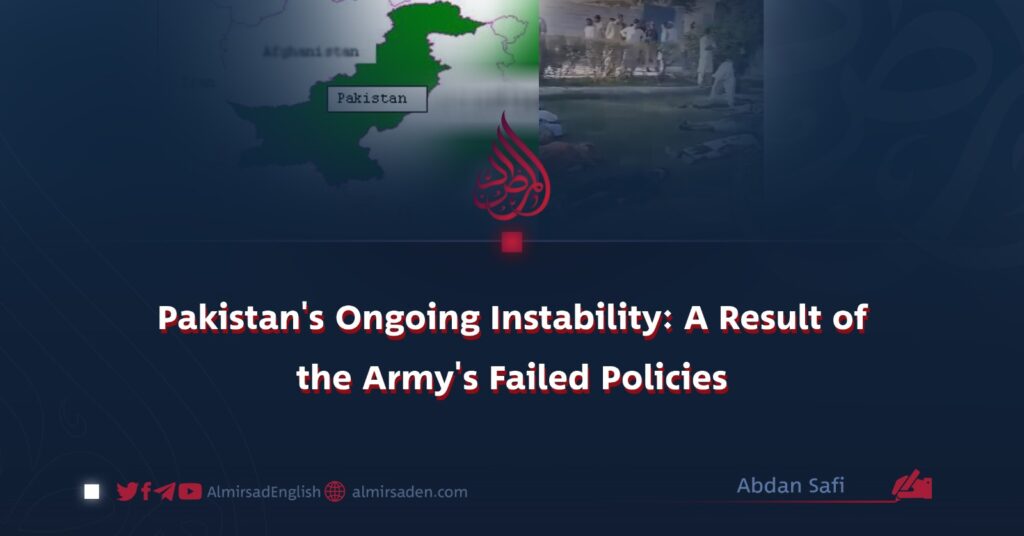Written by: Abdan Safi
Pakistan is ranked among the most unstable and violence-prone countries in the world. In recent days, collective violence and political instability have further exacerbated the situation. Reports of insecurity from across the nation have become an integral part of daily life for its citizens. The situation has deteriorated to the extent that instead of ensuring public safety, the military and other related institutions are more concerned about their own security.
As usual, Pakistani authorities deliberately attempt to link the ongoing insecurity—particularly the collective violence in Kurram Agency—with Afghanistan. By doing so, they aim to deflect attention from the outcomes of their own failed policies.
Over the past four decades, Pakistani authorities have established sectarian groups and used them for strategic purposes. They have consciously avoided taking decisive action against these groups, intending to reuse them for future objectives.
Initially, these sectarian groups were formed in major cities and Punjab. However, over time, their influence spread to other parts of the country. To this day, these groups operate in various forms under the supervision of the military and intelligence agencies.
Recently, under the military’s shadow, sectarian elements have once again been given freedom. This tactic aims to conceal the military’s failures behind the collective violence. Otherwise, how is it possible for a proxy group to rise openly under its own flag, burn homes, villages, and markets, kill people, seize military posts, lower the Pakistani flag, and hoist their own flag while the military remains a silent spectator?
Such actions clearly indicate the military’s involvement in these conflicts, either supporting one group or inciting another to engage in battles.
The question arises: how can the killing of four security personnel in Islamabad deemed sufficient to declare a state of emergency, while the killing of over 200 people in Kurram within a week receives no attention? This silence exposes the policies and intentions of the military and intelligence agencies.
Instead of ensuring internal security, Pakistan’s military has focused all its efforts on domestic political engineering. It weakens political parties, establishes specific governments, and manipulates public opinion while taking only superficial measures to protect its citizens or blaming neighboring countries.
In contrast, the Islamic Emirate of Afghanistan has demonstrated through recent actions that it is serious about addressing internal issues of collective unrest. It consistently emphasizes the unity of the Muslim Ummah and considers all religious groups as part of Afghan society.
It is true that Pakistan has attempted, and continues to attempt, to target Afghanistan’s Shia minority, particularly the Hazara community, through its proxy group ISIS. However, the Islamic Emirate swiftly controlled the situation and thwarted most of these malicious plans.
Allegations by Pakistan’s intelligence agencies that the Islamic Emirate promotes sectarian violence in Pakistan are completely baseless and far from reality. The Islamic Emirate has taken practical steps to eliminate collective differences and support religious unity in the region.
Instead of accusing others, Pakistan should learn from its failed policies and draw lessons from the successful experiences of the Islamic Emirate.
The policies of Pakistani institutions—whether domestic or foreign—have repeatedly caused insecurity and instability. Their political interference, ties with sectarian groups, and lack of transparency have created countless problems for the nation.
